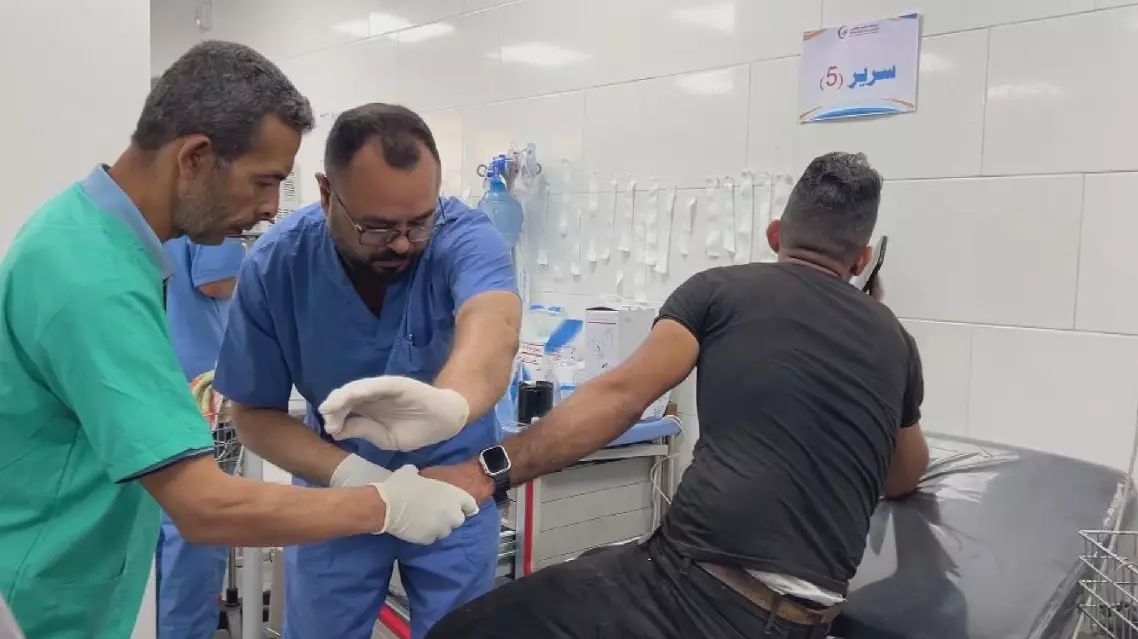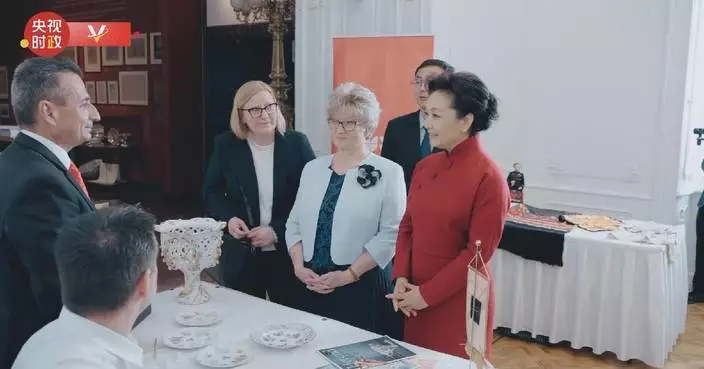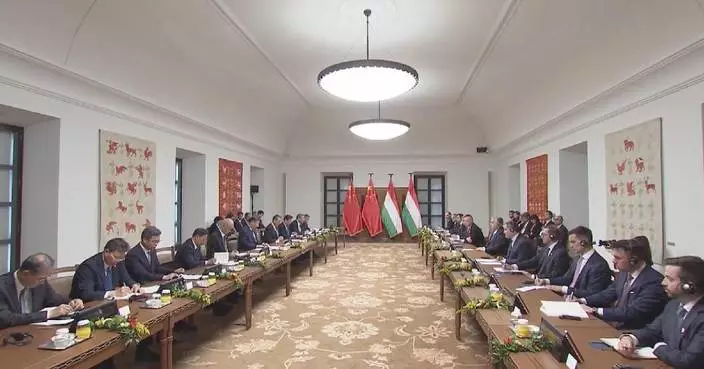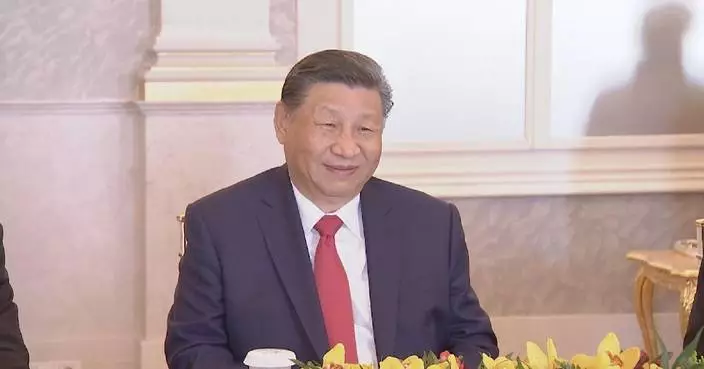China's rise in advanced technologies and artificial intelligence (AI) is challenging the United States, necessitating a paradigm shift towards collaboration and reciprocity in the AI landscape for sustainable progress, said Thorsten Jelinek, director of the Taihe Institute European Center.
Speaking in an interview with China Global Television Network (CGTN) recorded on April 8 and released on Saturday, the Berlin-based scholar argued against viewing AI collaboration as a zero-sum game, underscoring the need for a paradigm shift in how superpowers interact within the realm of technology.
"The short answer is no. But innovation is the only area which has no diminishing returns. You can utilize all your natural resources, but there's a limit. You can increase efficiency, reduce costs, but there's a limit. But with innovation, it's the only way you can grow, and here, China for the first time a country is really challenging the United States, and I think that's a big issue for the U.S. growth model. So, it's not so easy also for the United States to say, 'Okay, okay, we will back off, and we will become friends.' No. It must be clearly understood that this is not an easy game. So, for each of the areas of tension, both superpowers and the EU, should come together and find a mechanism of maybe reciprocity, but to find a mechanism of collaboration. I think this is the only way forward," Jelinek said.
Jelinek further elaborated on the dynamics of technological advancement and international relations, suggesting that both countries can benefit from cooperation rather than confrontation.
"You have to consider, with all my admiration and respect, how China broke through, it was the United States building up the post-Second World War platform, right? It has created a lot of wealth, and now we have to see [and] understand how the U.S. cannot just give it up, and China needs to also see how it can improve it, and how both sides can improve it. I think everyone benefits if China is growing healthily and the United States is coming back onto a normal, healthy growth. I think this is what we should aim for," Jelinek added.

Scholar urges AI collaboration, rejects zero-sum game for global tech leadership

Scholar urges AI collaboration, rejects zero-sum game for global tech leadership
The medical system in Gaza's southernmost city Rafah has plunged into a severe crisis following the Israeli airstrikes on Monday, leaving only one hospital struggling to operate amidst a shortage of medical supplies.
Israel's military said on Monday night that it was carrying out large-scale airstrikes in Rafah.
The airstrikes have not only forced numerous local residents to flee and severely hampered the transportation of humanitarian aid, but also resulted in the closure of Abu Yousef al-Najjar Hospital, one of Rafah's two major hospitals.
Consequently, the Kuwait Hospital currently becomes the sole medical institution in the city with a population of more than one million. However, with only dozens of sickbeds, the hospital is facing significant challenges in handling the overwhelming influx of injuries.
"The medical condition in Rafah is extremely terrible now. We used to receive treatment at Abu Yousef al-Najjar Hospital, the only public hospital in Rafah, but now Rafah has no other hospital except the Kuwait Hospital, which is a very small private hospital. We have to wait several hours to see a doctor, but most of the time, we are unable to receive medical treatment. The medical staff are also exhausted and unable to provide treatment in the best possible manner as they did before," said Yusuf, a patient.
"The Abu Yousef al-Najjar Hospital, which is the nearest hospital to us, ceased operation after the beginning of the Israeli military action. Now we have no choice but to seek medical treatment at Kuwait Hospital. There are always long queues, and it is hard to obtain all the medicines we need. Quite frequently, we could only get just one out of the four to five types of medicines that we require," said Mohammed, another patient.
Suhaib Al-Hams, director of the Kuwait Hospital, noted on Thursday that the hospital's fuel reserves could only sustain its operation for a maximum of three days, saying that the power supply system of the hospital is likely to be paralyzed thereafter.
"Due to the closure of Abu Yousef al-Najjar Hospital, we are unable to cope with such a large number of casualties and critically ill patients. There is a severe shortage of healthcare professionals. Currently, apart from Kuwait Hospital, there is no institution truly responsible for providing medical service in Rafah. We appeal to everyone in the world to not abandon Gaza and leave it to face this crisis alone. What is urgently needed now is an immediate cessation of conflict, putting an end to the deaths and casualties among the Palestinian people," said Suhaib Al-Hams.
Israel's army announced on Wednesday that it was continuing its ground assault on Rafah, reporting approximately 30 casualties since the offensive began on Monday night.
According to an army statement, the 30 casualties were militants, while Gaza health officials reported about 35 deaths, including a four-month-old baby.

Rafah medical system plunges into crisis following Israeli airstrike











